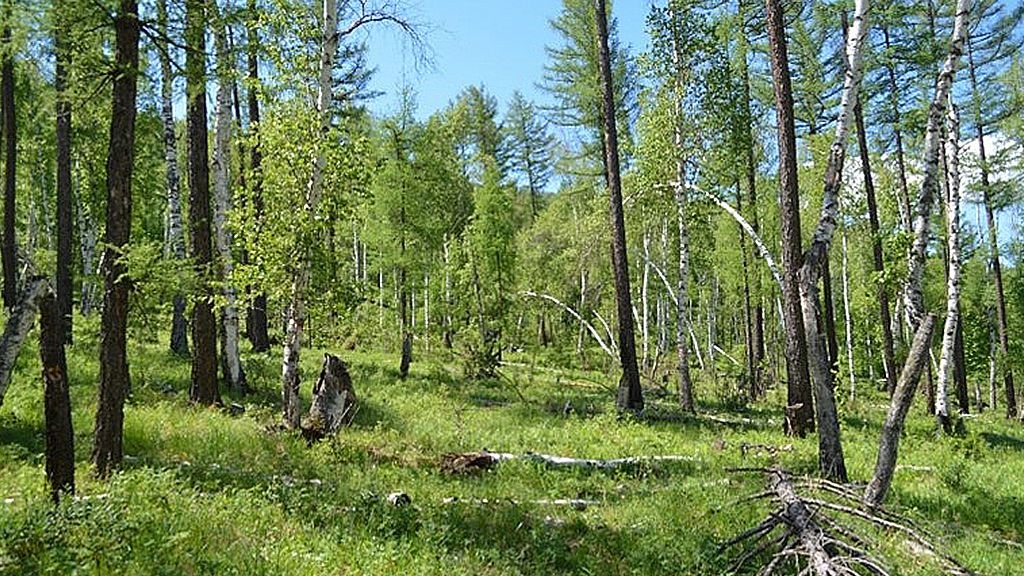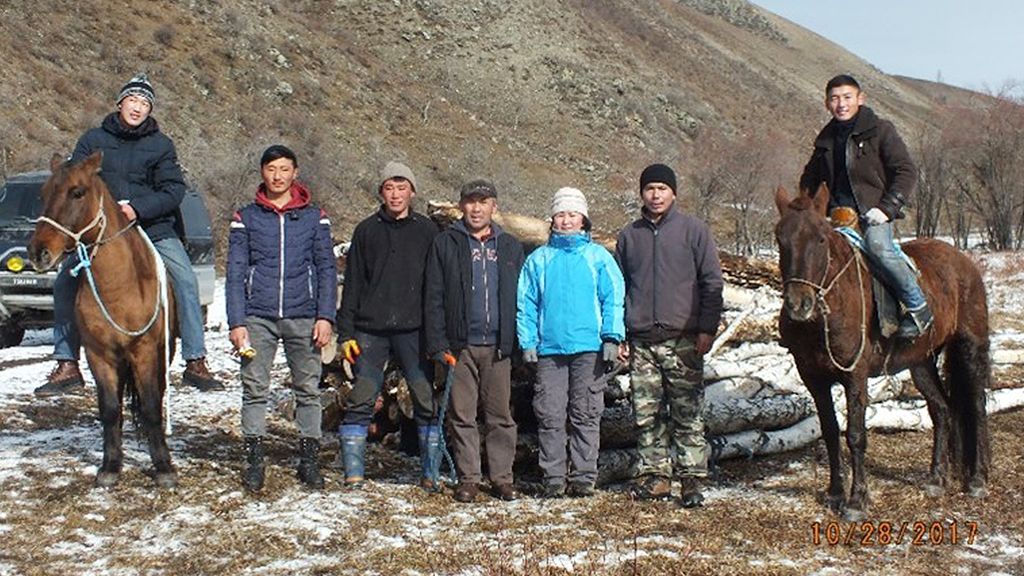Others
Saving Mongolian Forests with Finnish Expertise
22 Feb 2022

Mongolia's forests are under threat. An ADB project, financed by the Japan Fund for Prosperous and Resilient Asia and the Pacific, is building resilience of forest ecosystems by boosting capacity for forest management.
Boreal forests cover 14.2 million hectares or 9% of Mongolia. With support from ADB, expertise from Finnish partners, and local participation, sustainable forestry is promoted to build the resilience of Mongolia's forests.
Improving the livelihoods of local communities through sustainable forest management would require policy changes. Mongolia is building resilient forests, restoring and conserving forest resources, as well as developing economic opportunities.
Famously known for its deserts and steppes, Mongolia is actually a forest nation too. Boreal forests cover 14.2 million hectares or 9% of this vast country. Compared with tropical forests, boreal forests store twice as much carbon per hectare, much of it below ground. They are the earth’s largest terrestrial carbon sink, a hugely important factor in the fight against climate change.
But Mongolia’s forests are under threat. More than 140,000 hectares of forest are lost every year to fires, insect pests, grazing, and illegal logging. Being one of the coldest countries in the world, Mongolia is already seeing the impacts of climate change, with average temperature increases of more than 2 degrees Celsius, and significant changes to once reliable precipitation patterns. Average annual precipitation in northern Mongolia is around 220 millimetres, less than a quarter of the globally averaged annual precipitation. Drier forests contain large amounts of deadfalls and debris, further increasing the fire risks.
Unsustainable and illegal logging poses another threat. The Government of Mongolia has enacted a variety of laws and policies to curb the loss of forest cover. One of these, the Law on Environmental Protection, was amended in 2005 to allow for the creation of Forest User Groups (FUGs), voluntary organizations of local citizens that are tasked with the appropriate utilization and rehabilitation of local forests in accordance with civil law. The implementation of FUGs has resulted in a significant decrease in illegal logging wherever these groups are active.
Sustainable Forest Management
In 2015, the Mongolian government and ADB signed a letter of agreement for a technical assistance (TA) project to improve sustainable livelihoods for local communities through sustainable forest management. The project, totaling $2.1 million, was financed by grants from the Government of Japan through the Japan Fund for Poverty Reduction, now Japan Fund for Prosperous and Resilient Asia and the Pacific. The executing agency was the Ministry of Environment and Tourism, represented by its Forest Policy and Coordination Department.
The project targeted building resilience of boreal forest ecosystems, supporting policies around forest protection while encouraging private enterprises and FUGs to get involved in forest management. “To achieve these goals, the project was designed to boost capacity of governmental forest management line agencies and to strengthen forest product value chains. It was also necessary to improve FUGS’ capacities to managing the forests for which they are responsible,” says ADB Country Director for Mongolia Pavit Ramachandran. “The project also demonstrates technology for wood processing systems.”
In 2015, NIRAS, a multi-disciplinary consulting company with its global headquarters in Denmark, was awarded a contract of $2 million to provide the technical assistance. NIRAS’ Finland office, jointly with their local partner MonConsult LLC., implemented the TA.
Forestry a Finnish Specialty
As one of the most forested countries in Europe, with trees covering two thirds of its area, Finland has a long history of working for a balance between intensive industrial use of forests and sustainability. Until the 19th century, Finnish forests were heavily exploited for building materials and fuel as well as for exports, later for pulp and paper production. This was a concern for Anton Blomqvist, the father of Finnish forestry. Foresightful, he founded its first professional institution to train forest officers in 1862, the Evo College forest school, only two years after the establishment of Finland’s Ministry of Agriculture. In 1907, the Finnish forest management society (Tapio) was founded as the first nongovernment organization to assist with forestry management and the rational use of forest resources.
“We are proud to have played a role in promoting the importance of sustainable forestry and building related capacities in Mongolia,” says NIRAS Regional Director for Asia and Pacific Antti Inkinen. “NIRAS Asia, with head office in Manila, specialises in transferring our global expertise to the many countries NIRAS works in with ADB. In the case of Mongolia and forestry, this international expertise was firmly anchored in Finland, specifically applied in developing transparent fair value chains for forest products and services to generate new income and employment opportunities for the local community while securing protection of the natural environment.”
The project engaged in a variety of activities, including business management training; the integration of global information systems to capture related data in the planning of the sustainable forest management; and forest and non-forest product development. The Bayan Tunkhel Cooperative was created as a pathway for FUGs to derive economic benefit from harvesting forest products, utilizing wood processing technology, and providing biomass for heating.
The project found that improving the livelihoods of local communities through sustainable forest management would require policy changes. These would promote community-based forest management planning, the removal of ineffective timber quotas to allow FUGs to harvest more valuable products under controlled circumstances, and a greater sense of ownership that allows FUG members to derive economic value from their activities.
“The outcome from this TA puts forestry high up on the agenda in Mongolia,” says ADB Principal Environment Specialist Suzanne Robertson. “We see an increased environmental awareness and the role of forests within that, which, given the importance of forests in the fight against climate change is extremely welcome.”
Mongolia’s boreal forests act as ecological security buffers, being a source of food and fuelwood and livelihoods to local communities. By developing methods and tools, along with capacity building and knowledge sharing, the project has enabled FUGs to prepare sustainable forest management plans that restore and conserve forest resources, as well as develop economic opportunities. Continuing to support FUG’s is a good way to ensure the future of Mongolia’s boreal forests.
Providing Long-term Development Support
The ultimate goal of ADB’s support is to help achieve a climate-resilient, sustainable forestry sector which benefits local livelihoods. Achieving this requires a long-term commitment. In 2021, the Government and ADB initiated a follow-up project, the Forest Sector Development Program (2021–2023). The project is being funded by another generous grant ($0.8 million) from the Government of Japan through the Japan Fund for Prosperous and Resilient Asia and the Pacific. The program is in the early stages of implementation and will be reported on in the future.
ADB, Mongolia and Europe
Since Mongolia joined ADB in 1991, ADB has been Mongolia’s largest multilateral development partner, supporting the country’s transformation to a middle-income, market-based economy. In those 30 years, ADB has committed sovereign loans totalling $3 billion, nonsovereign loans totalling $182.1 million, grants of $335.7 million, and technical assistance worth $187.1 million for Mongolia. The blueprint for ADB’s operations in Mongolia, the Country Partnership Strategy (2021–2024), focuses on fostering inclusive social development and economic opportunity, climate-resilient infrastructure to drive competitiveness and diversification, and resilience for sustainable, green, and climate-conscious development.
ADB’s European Representative Office, based in Frankfurt, Germany, works with companies and governments across ADB’s 17 European member countries to facilitate the application of European expertise in ADB projects in its developing member countries.
This article is reproduced from Asian Development Bank.


